Kelso Abbey
Religious Place In Kelso, Borders
A ruined 12th century Abbey in the Royal Burgh of Roxburgh, Kelso.
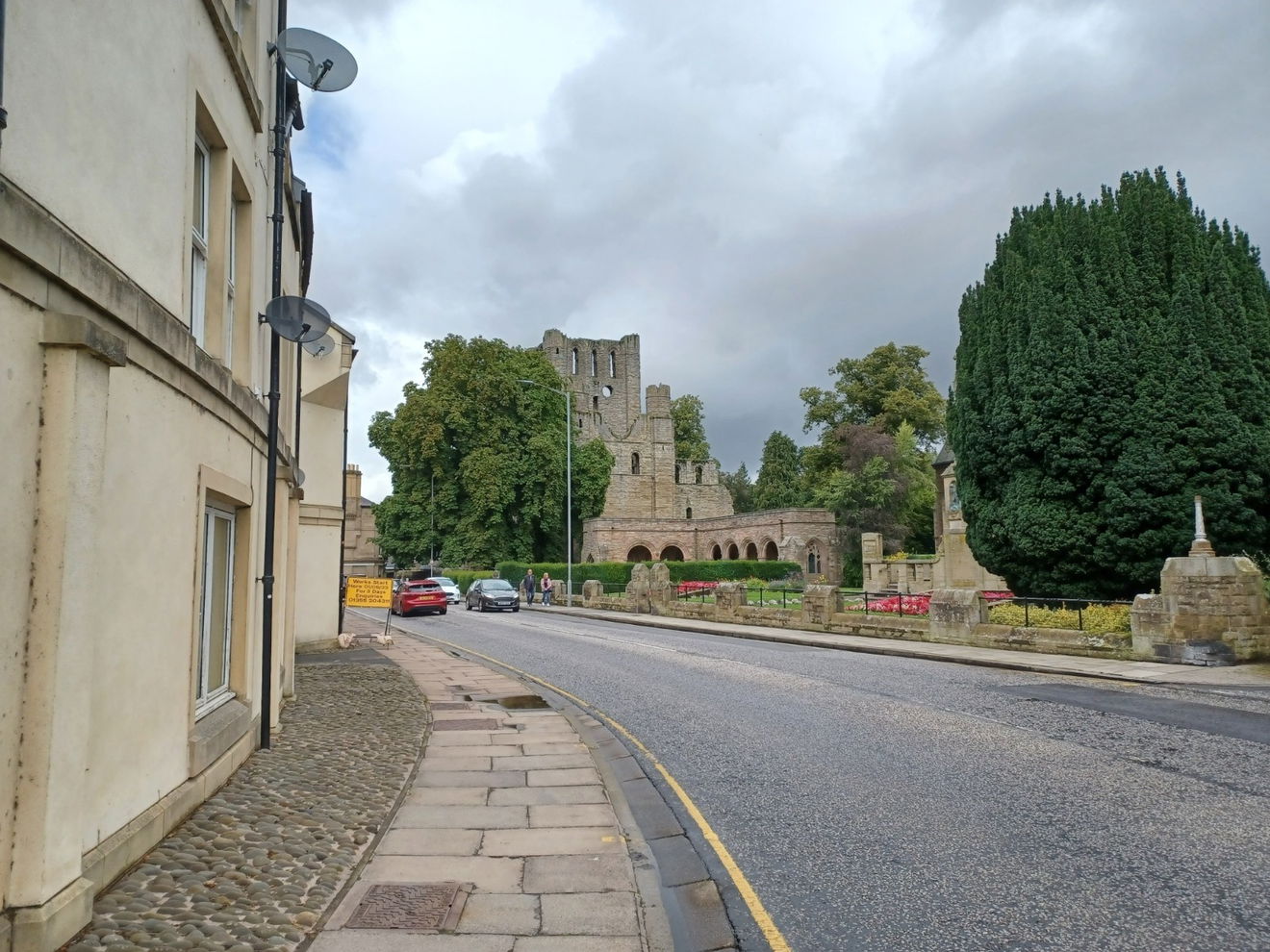
Kelso Abbey is a ruined Abbey in Kelso, Scotland. The Abbey was founded by a community of Tironensian monks in the 12th century who had arrived in Scotland during the reign of Alexander I. It is located at a point that overlooks the confluence of the River Tweed and River Teviot, close to the site that was the Royal Burgh of Roxburgh and the southern centre of the developing Scottish kingdom. Kelso thus became the seat of a pre-eminently powerful abbacy in the heart of the Scottish Borders.


The Abbey was founded in 1128 by King David I of Scotland. David was a great admirer of the Tironensian order, which had been founded in Ireland in the 12th century. He invited a group of Tironensian monks to Scotland and gave them land at Selkirk. The monks soon outgrew their Selkirk monastery and moved to Kelso in 1128. At the time David was cultivating Roxburgh as the major economic and administrative centre in Scotland, which is no doubt partly why the Abbey moved there.
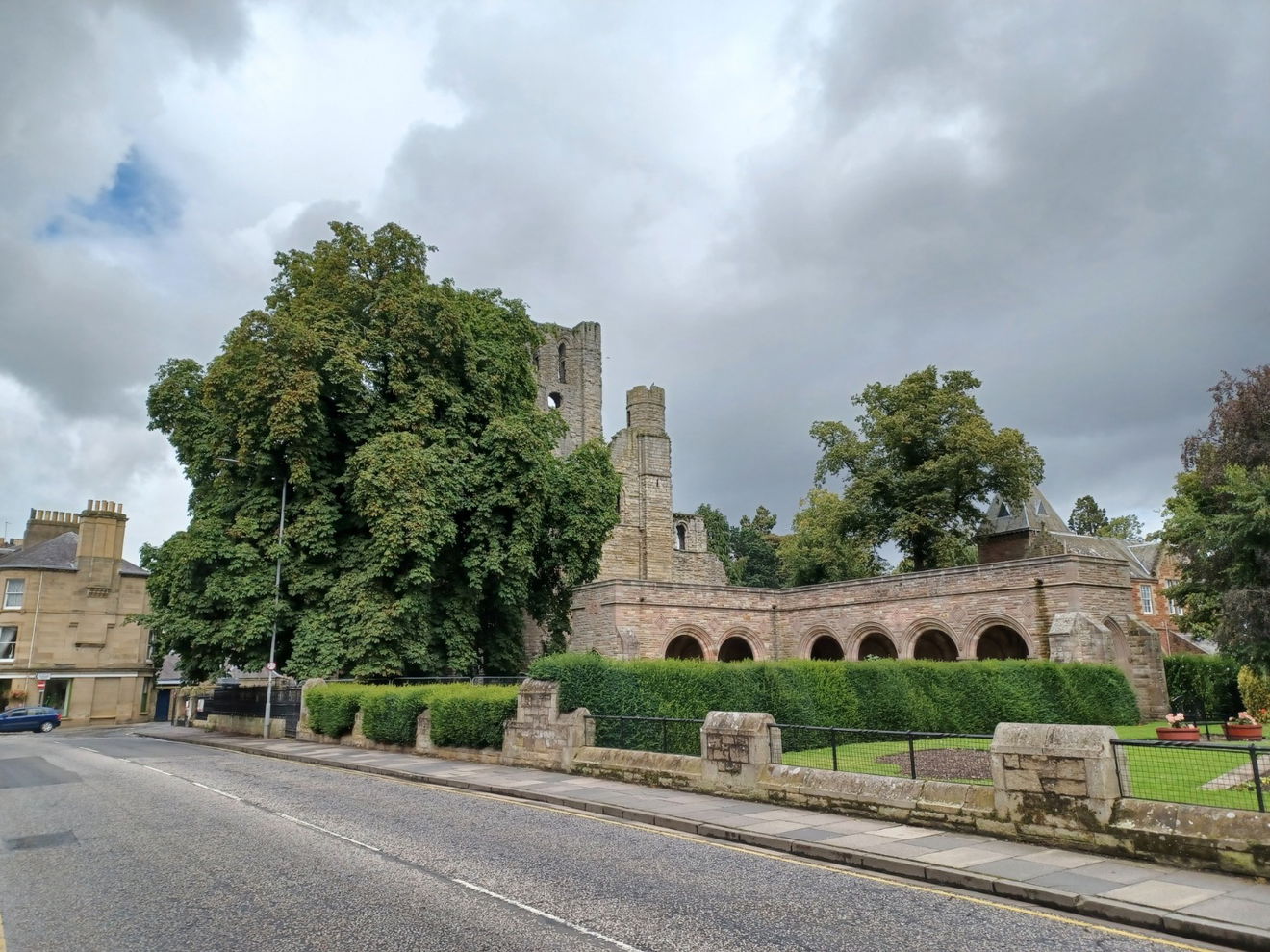
The Abbey church was built over a period of about 100 years. It was completed in the mid-13th century and was one of the largest and most impressive abbeys in Scotland. The church was built in the Romanesque style, with a long nave, two transepts, and a choir. The west front of the church was particularly impressive, with a large rose window and three tall lancet windows. By 1143 it was complete enough to be dedicated to The Blessed Virgin and Saint John.
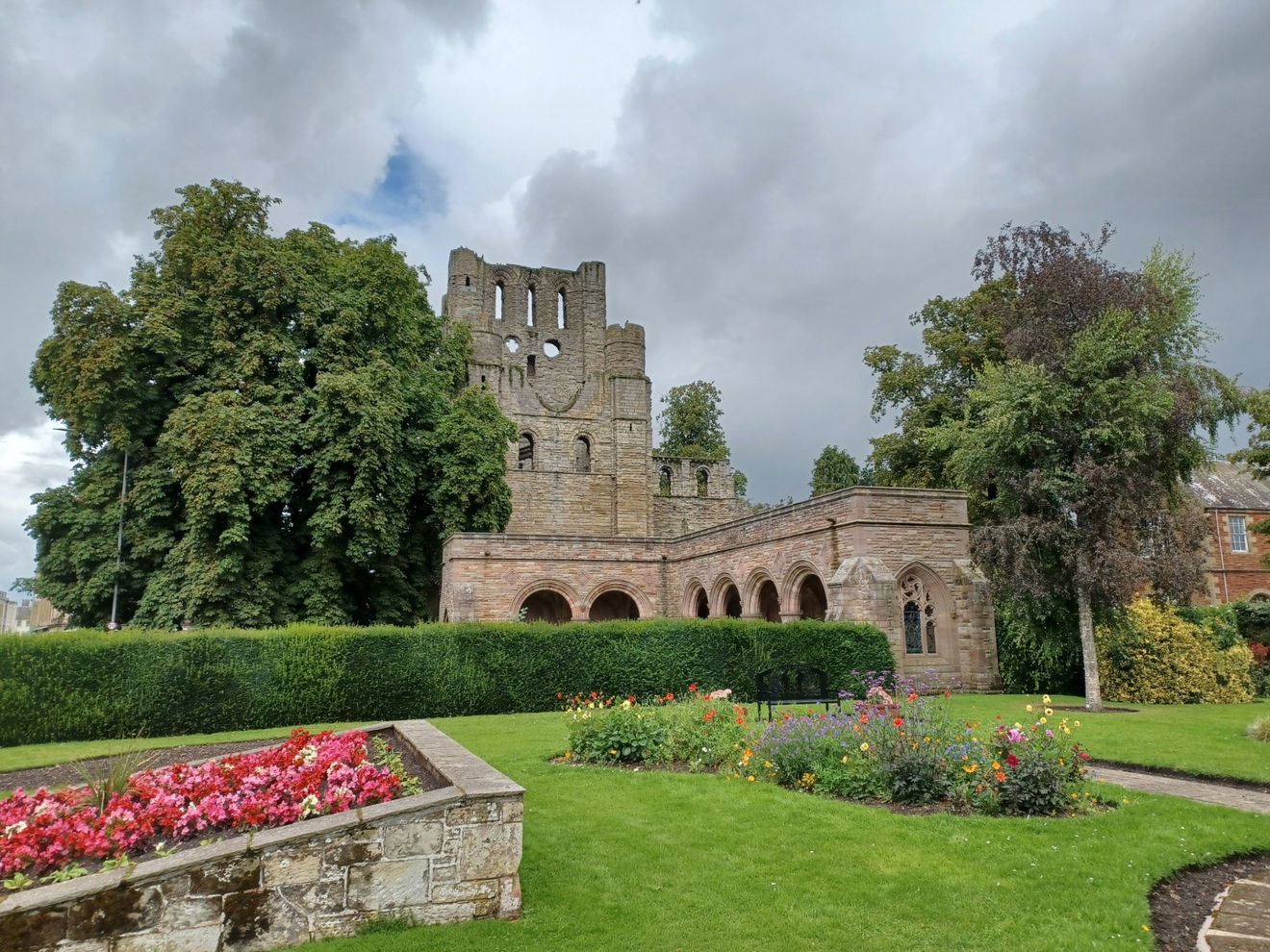
The Abbey was a wealthy and powerful institution. It owned vast estates in the Borders and was a major centre of learning and culture. The Abbey had a strong military presence, with its own garrison of soldiers and it was also within sight of Roxburgh Castle.
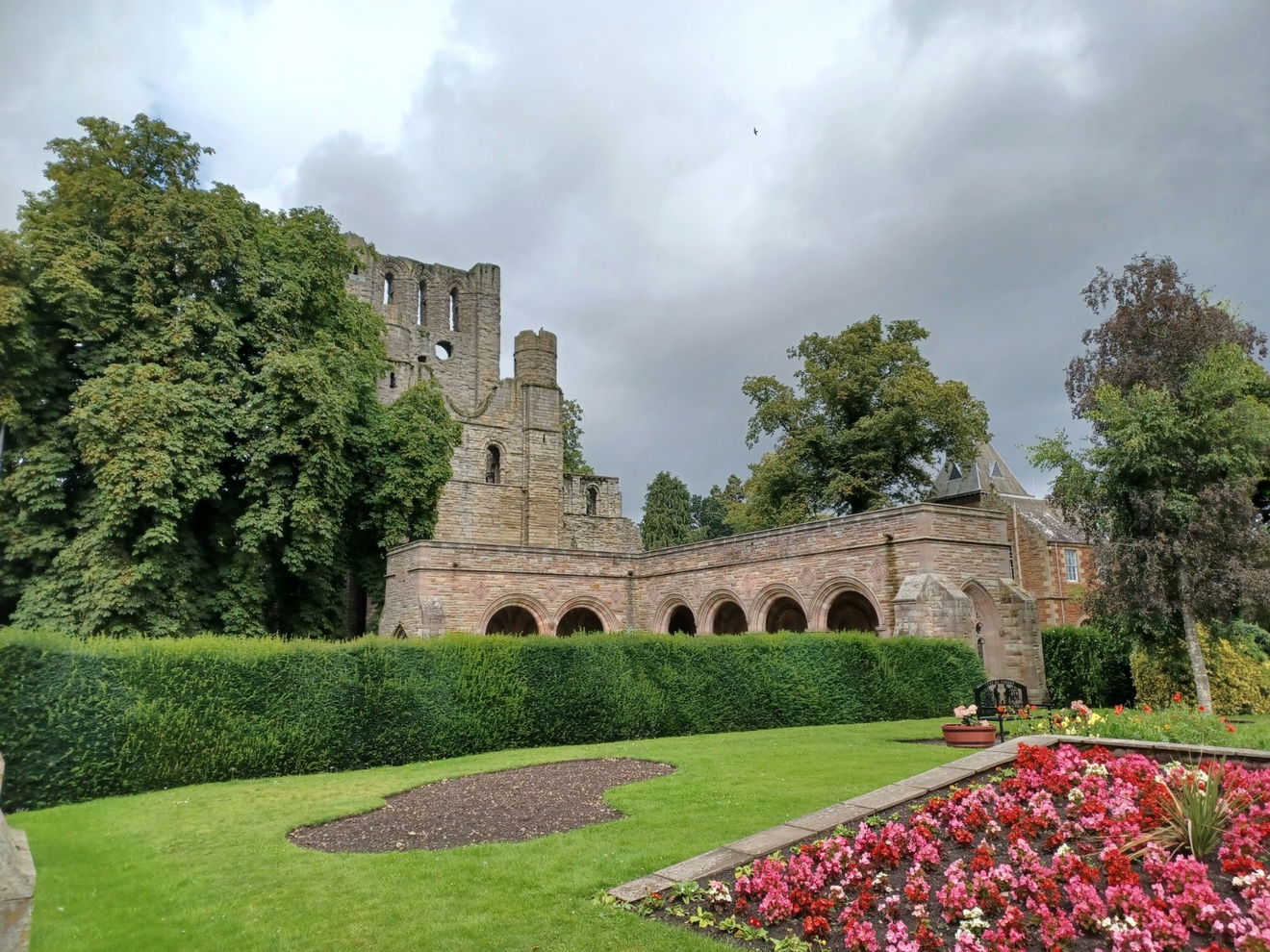
The Abbey suffered during the Wars of Independence in the 14th century. It was attacked and damaged by the English on several occasions. However, it was rebuilt by the monks and continued to flourish. In 1460 King James II was killed in an accident at Roxburgh Castle and Kelso Abbey was the location for the coronation of the new King James III who was only a child at this point.
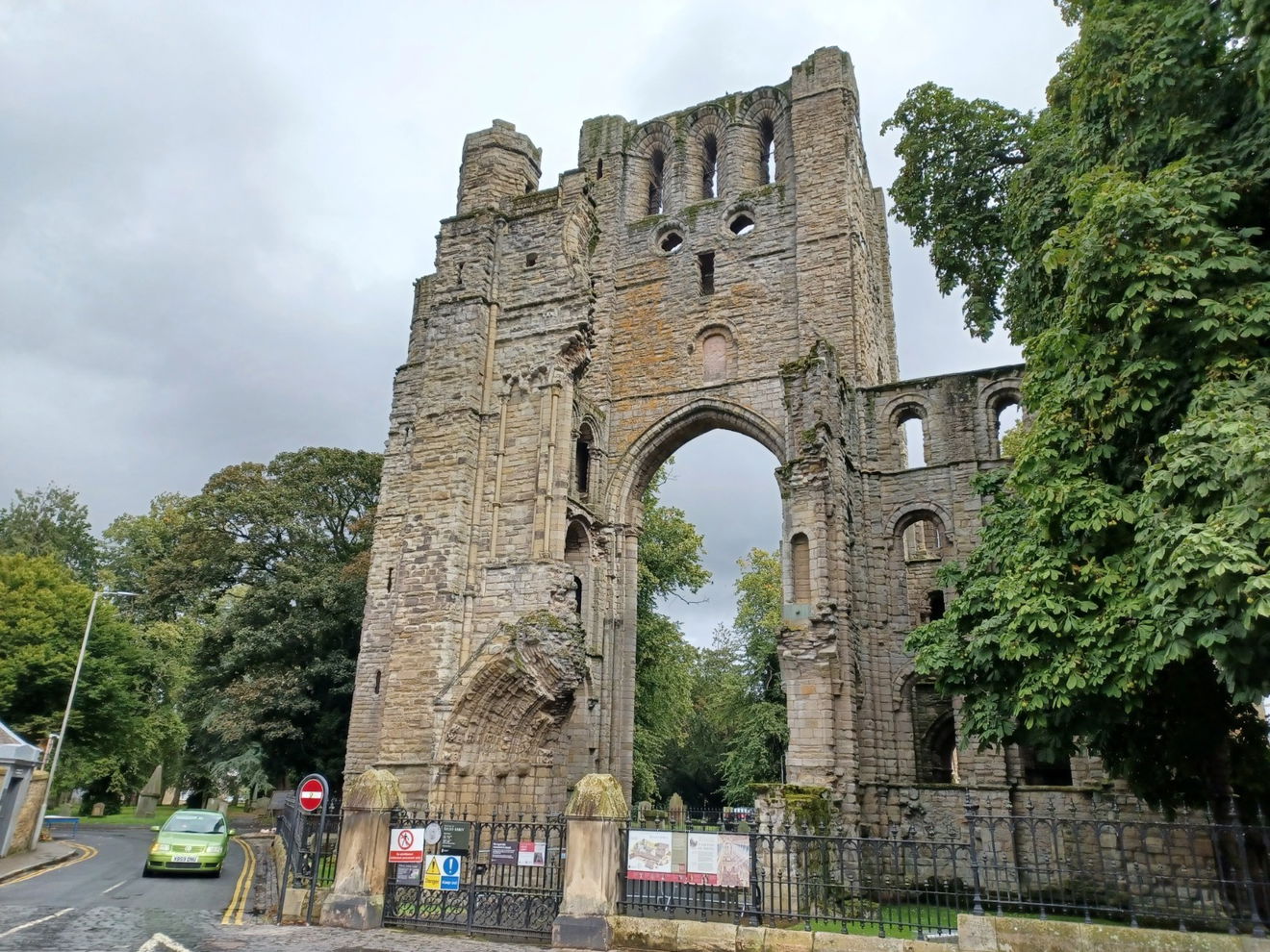
In the 16th century, the Abbey was again attacked, this time by the English during the Rough Wooing. The abbey was badly damaged and was never fully repaired. It was finally abandoned in the 17th century.
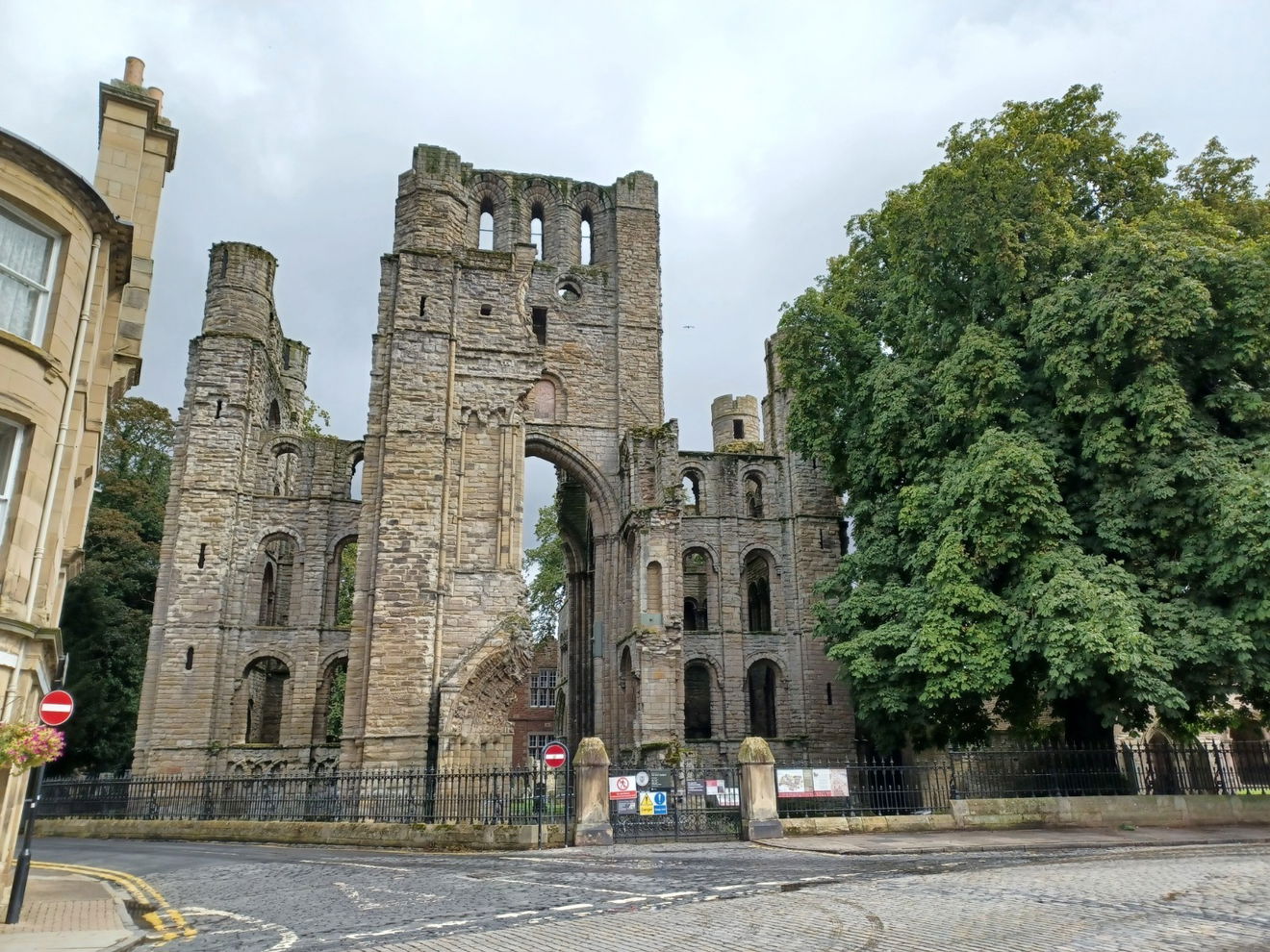
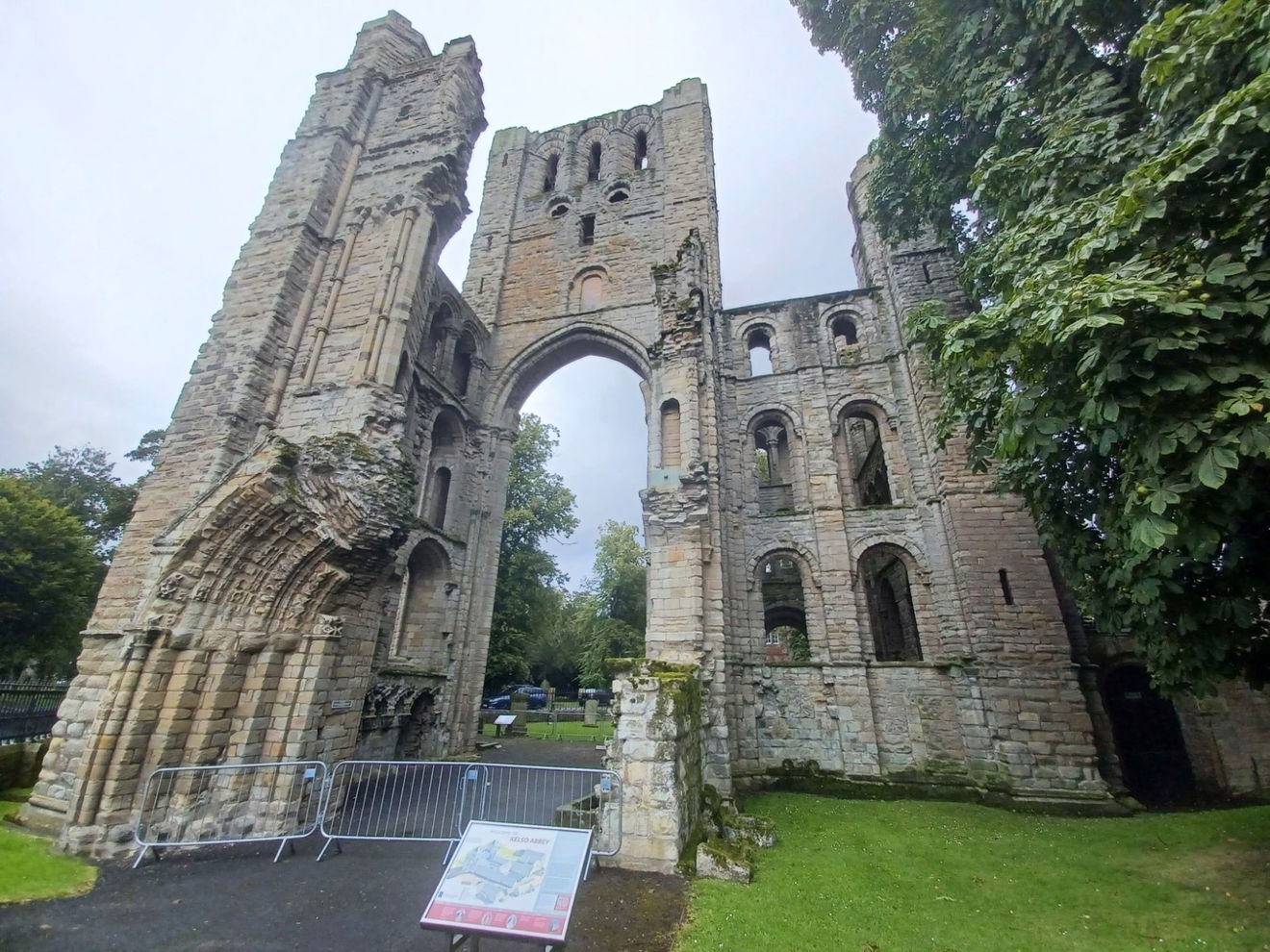
During the 17th and 18th century the Abbey ruins were in part dismantled and used by locals to build new buildings in the town, then in 1805 large areas of the ruins were cleared away, leaving only the west tower and transept. In 1933 a memorial cloister was constructed to the 8th Duke of Roxburgh. This was designed by Reginald Fairlie and was in the style of the original cloisters.
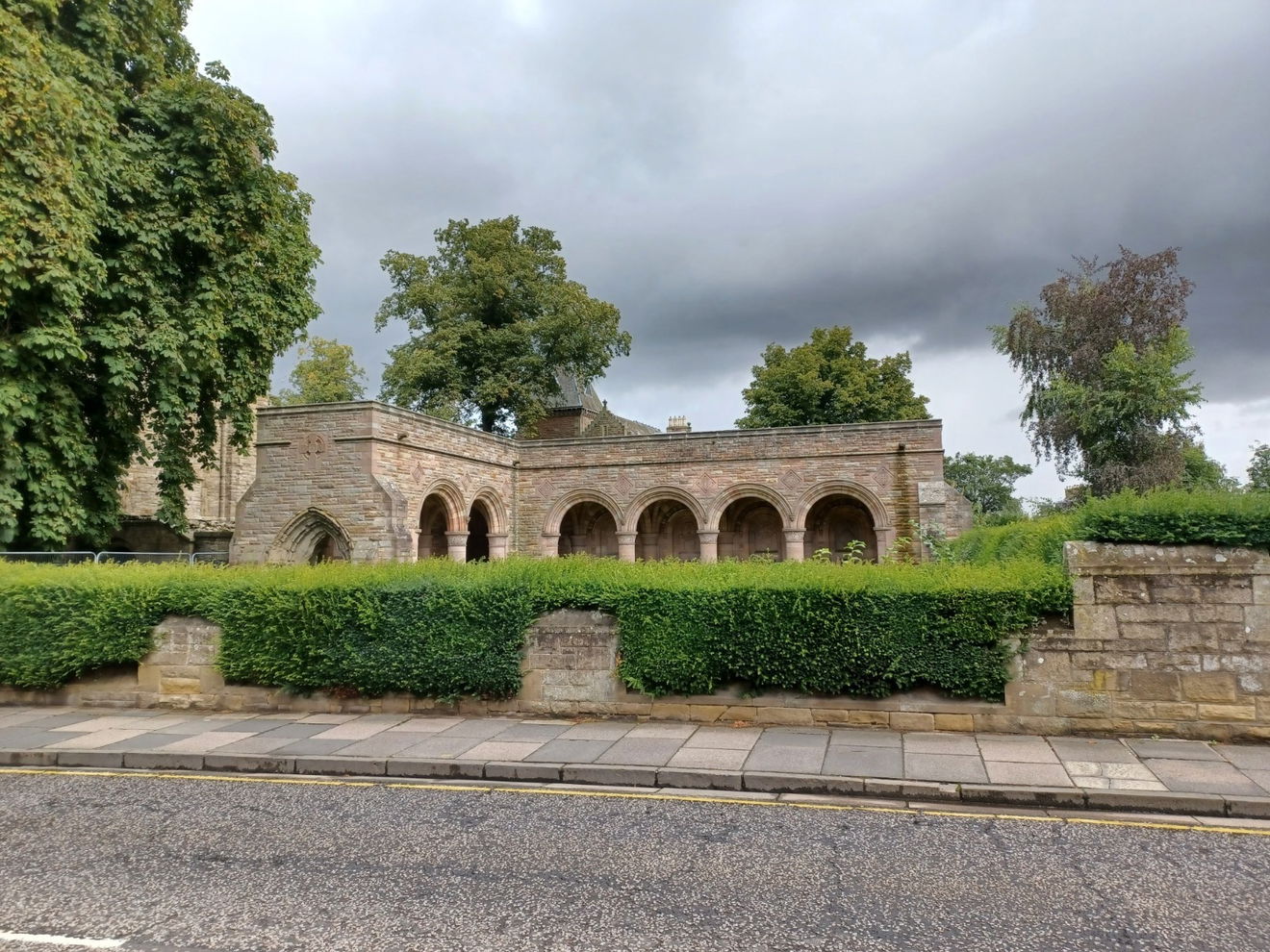
The ruins of Kelso Abbey are managed by Historic Environment Scotland and are currently not open to the public due to important repairs to the structure, although you can still see most of the building from the street outside. The abbey is a Grade A listed building and is considered to be one of the most important examples of Romanesque architecture in Scotland.
Get 2 points if you have visited this place. Already visited by 109 VIPs.
Login to the VIP area to add places to your bucket list, mark them as visited and more importantly see where you rank on the league table.
How To Find Kelso Abbey
Where To Park For Kelso Abbey?
Lat / Long
55.597415, -2.430627
What three words
There is free parking in the town centre of Kelso.
Contributed by Andrew Gardner
I love being outdoors, in nature, and experiencing the relaxation it brings. Wandering through the northern countryside seeing unexpected buildings, historic places and occasionally surprised wildlife is one of life's great pleasures.
More Places from Andrew
More Places In Kelso
Find more fabulous places in Kelso, Borders and if you know of a place we haven't listed, then let us know.
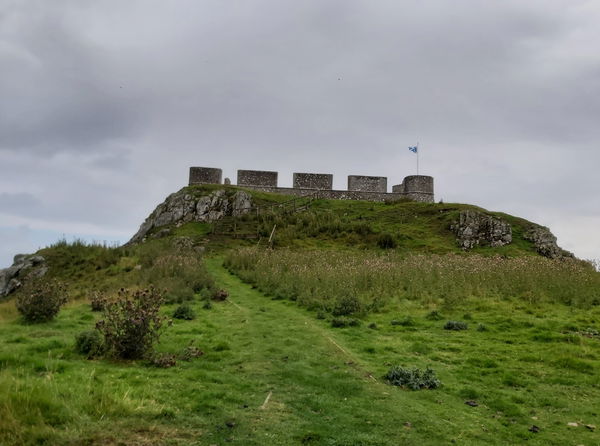
Hume Castle
Castle Kelso BordersA heavily modified ruin of an early 13th century castle held by the powerful Hume family.
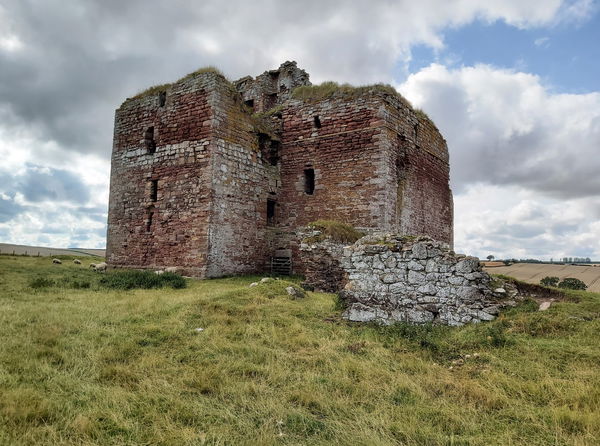
Cessford Castle
Castle Kelso BordersA ruined castle on the Scottish side of the border built by the 1st Earl of Roxburghe.
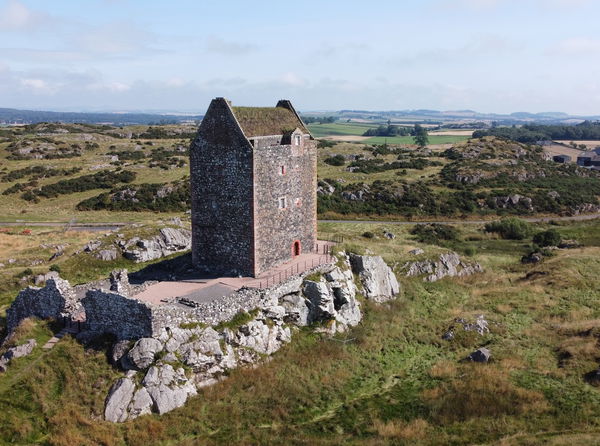
Smailholm Tower
Tower Kelso BordersA beautiful tower sitting atop the crag of Lady Hill near Kelso.
More Religious Places
So this religious place wasn't enough and you want more? Don't worry we have you covered.

St Mary Magdalene Church Mitford
Religious Place Morpeth NorthumberlandA Grade I Listed Church in Mitford with a number of interesting architectural features and Grade II Listed tombstones and Lych Gate in the churchyard.
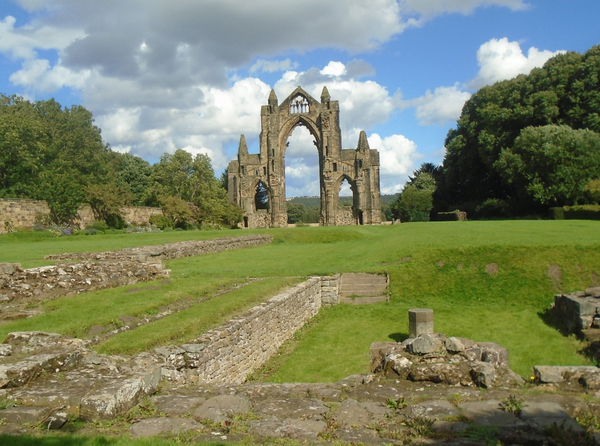
Gisborough Priory
Religious Place Middlesbrough North YorkshireA ruinous Augustinian Priory in Guisborough, North Yorkshire.
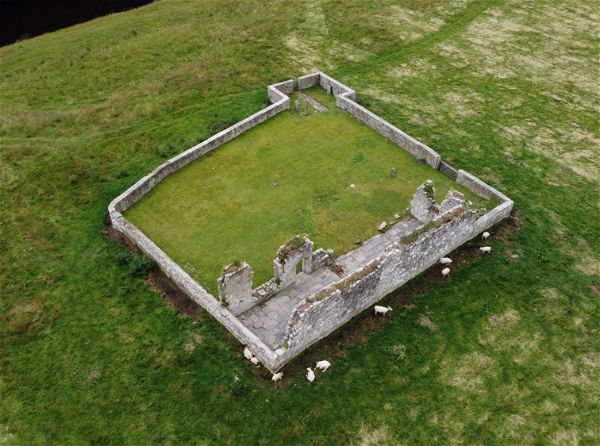
Brainshaugh Priory
Religious Place Guyzance NorthumberlandOriginally St Wilfrid's Premonstratensian nunnery, this ruined priority sits by a tight bend in the River Coquet.
Never Miss A Fabulous Place
If you are afraid of missing out on all the fabulous places we post, or just want to be the first to know, then sign up to the Fabulous North.
Each week we will email you all the brand new places that we visit.
Sign Up To AlertsFind Us On Facebook
We post all our new places daily on our Facebook Groups page, so join the group today and be notified when we add a new place.
Join Our Facebook GroupKelso Abbey was listed in Religious Place // Borders // Kelso

